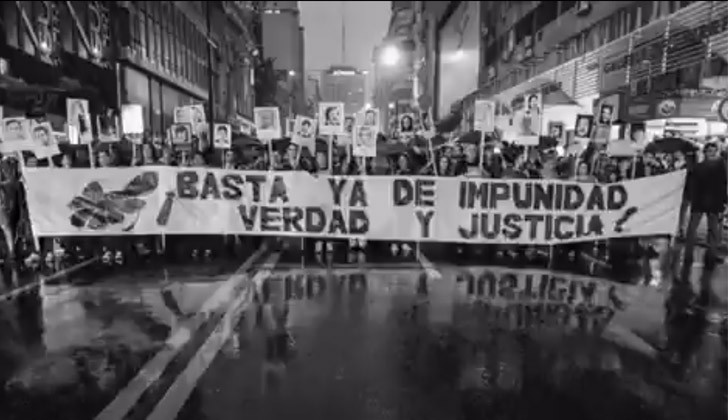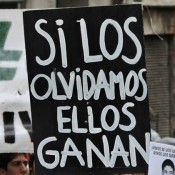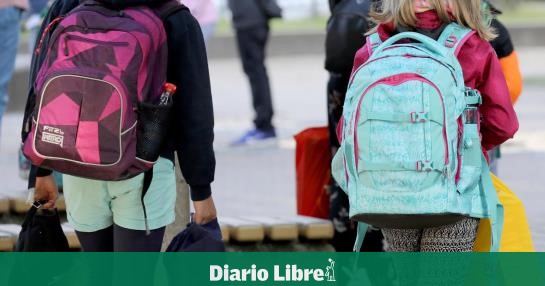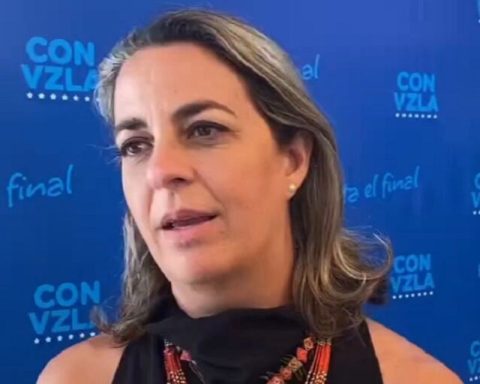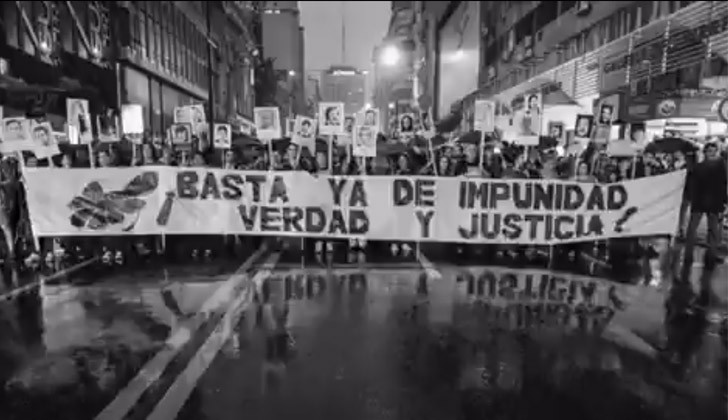
The letter addressed to the President of the Republic, Luis Lacalle Pou, was transmitted through diplomatic channels through the Embassy of Uruguay in France.
The signatories echo the letter sent on November 16, 2021 by five UN rapporteurs to the Uruguayan government on the bill presented in the Senate and which provides for mandatory house arrest for soldiers, police officers and civilians over 65 years of age. responsible for crimes against humanity, to which the Uruguayan government has not yet responded.
The bill is “contrary to international law due to its general, automatic and permanent nature; In addition, it is not necessary or proportionate to the seriousness of the crimes, ”say the signatories.
impunity factor
If the Law is approved “it will be a factor of impunity for serious violations of human rights and crimes against humanity,” the experts add.
The jurists highlight “the cry of alarm” of all Uruguayan human rights organizations and the massive demonstration on December 9 in Montevideo against the project, and “request the Uruguayan president, senators and deputies not to support the Prison Law mandatory house arrest whose sole objective is “to release the authors of horrendous crimes such as torture, forced disappearance and theft of children,” reported the Association Where Are They? from France.
Report
The house arrest bill for perpetrators of crimes against humanity in Uruguay is contrary to international law We have become aware of the letter sent by five UN rapporteurs to the Uruguayan government about the bill that is being studied by the Senate and that provides for mandatory house arrest for soldiers, police officers and civilians over 65 years of age responsible for crimes against humanity, torture, forced disappearances and theft of children, and who have already been sentenced to prison or are likely to be. This bill was rejected by the Uruguayan Prison Parliamentary Commissioner. As indicated in the joint communication of the UN special procedures of November 16, 2021, it is incompatible with Uruguay’s international human rights obligations. It does not take into account the limits of international law for the granting of amnesties, pardons, sentence reductions, benefits in the execution of the sentence or other similar measures granted to those responsible for serious violations of human rights and crimes against humanity. This bill is contrary to international law because of its general, automatic and permanent nature, but also because the measure is neither necessary nor proportionate to the seriousness of the crimes for which these people have been convicted. For these reasons, it constitutes a factor of impunity for serious violations of human rights and crimes against humanity. Presented by the Cabildo Abierto party, created by former soldiers who continue to defend the dictatorship, this project has caused strong emotion among the victims of the dictatorship and the families of the disappeared. Given the cry of alarm from all Uruguayan human rights organizations and the massive demonstration on December 9 in Montevideo, we ask the President of the Republic, Luis Alberto Lacalle, and the Uruguayan senators and deputies not to support the mandatory house arrest law for those responsible for serious violations of human rights, in particular crimes against humanity, torture, forced disappearance and theft of children.
Signatories
Paulo Abrão, jurist and Professor Visiting Scholar at Brown University, Executive Secretary of Inter-American Human Rights Commission (2016-2020), Executive Secretary Mercosur’s Human Rights Institute (2015-2016), Brazil’s National Secretary of Justice (2011-2014), Senior Advisor Washington Brazil Office and Article19. (Brazil).
Martin Almada, lawyer. Discoverer of the archives of the Paraguayan dictatorship and the Condor Plan. Alternative Nobel Prize 2002 (Paraguay.
José L. Almánzar, lawyer, specialist in Human Rights, Fundamental Rights and International Criminal Law. Rapporteur at the 46th regular session of the General Assembly of the Organization of American States (OAS), (Dominican Republic).
Magalie Besse, jurist, director of the Institut Francophone pour la Justice et la Démocratie – IFJD (Institut Louis Joinet) (France).
William Bourdon, lawyer of the Paris Bar Association and of the International Criminal Court, former Secretary General of the Federation Internationale des Droits de l’Homme (FIDH) (France).
Jo-Marie Burt, Associate Professor, Schar School of Policy and Government, George Mason University. Senior Fellow, WOLA: Advocacy for Human Rights in the Americas (USA).
Elisenda Calvet Martínez, Professor of Public International Law at the University of Barcelona (Spain).
Gloria Cano Legua, lawyer. Executive Director of the Association for Human Rights (Aprodeh) (Peru).
Pablo De Greiff, Senior Fellow and Director, Prevention Project Director, Transitional Justice Program Center for Human Rights and Global Justice, School of Law, New York University and Rapporteur, UN HRC Experts’ Group on Prevention (2019-2020), former UN Special Rapporteur for the promotion of truth, justice, reparation and guarantees (Colombia).
Anderson Dirocie, lawyer, specialist in Public International Law, Human Rights and International Criminal Law. Former Secretary General of the Latin American Council of International and Comparative Law Scholars, Dominican Republic chapter (COLADIC-RD) (Dominican Republic).
Mustapha El Manouzi, avocat, Président du Center Marocain de Démocratie et Sécurité (Maroc).
Mireille Fanon-Mendes France, President of the Fondation Frantz Fanon, EX UN Expert, Working group on People African Descent, Human Rights Council (France).
Gabriela Fried Amilivia, professor Department of Sociology and Latin American Studies Program- College of Natural and Social Sciences – California State University Los Angeles (CSULA) (USA).
Carlos G. Guerrero Orozco, lawyer and human rights defender. Co-founder of Human Rights and Mexican Strategic Litigation (DLM) (Mexico).
Aziz Idamine, Professor of Political Science, Secretary General of the Center International des droits et libertés, Zurich (Suisse).
Viviana Krsticevic, Executive Director | Executive Director/ Center for Justice and International Law | Center for Justice and International Law | Center for Justice and International Law (CEJIL) (USA).
Jean-Pierre Massias, president of the Institut Francophone pour la Justice et la Démocratie – IFJD (Institut Louis Joinet), Co-founder and Co-president of l’Association Francophone de Justice transitionnelle (France).
Juan Méndez, professor at the Washington School of Law of the American University and at the International Center for Transitional Justice, former president of the Inter-American Commission on Human Rights and former UN rapporteur against Torture (Argentina).
Naomi Roht-Arriaza, distinguished Professor of Law (emeritus), University of California, Hastings Law (USA).
Kim Reuflet Judge, counselor at the Angers Court of Appeal, president of the Syndicat de la Magistrature (France).
Malik Salemkour, jurist. President of the Ligue des droits de l’Homme (France).
Adriana Schnyder, researcher associated with the FNS project Right to Truth, Truth(s) through Rights: Mass Crimes Impunity and Transitional Justice- University of Geneva-Faculty of Law (Switzerland).
Jeanne Solal, jurist in international law, coordinator of the secretariat of the FEMED (Fédération Euromediterranéenne contre les Disparitions Forces) (France).
Philippe Texier Magistrate, former member of the French Court of Cassation, member of FIDH and the Permanent Court of Peoples (France).
Sophie Thonon, lawyer of the Paris Bar Association, President of France Amérique Latine (France).
